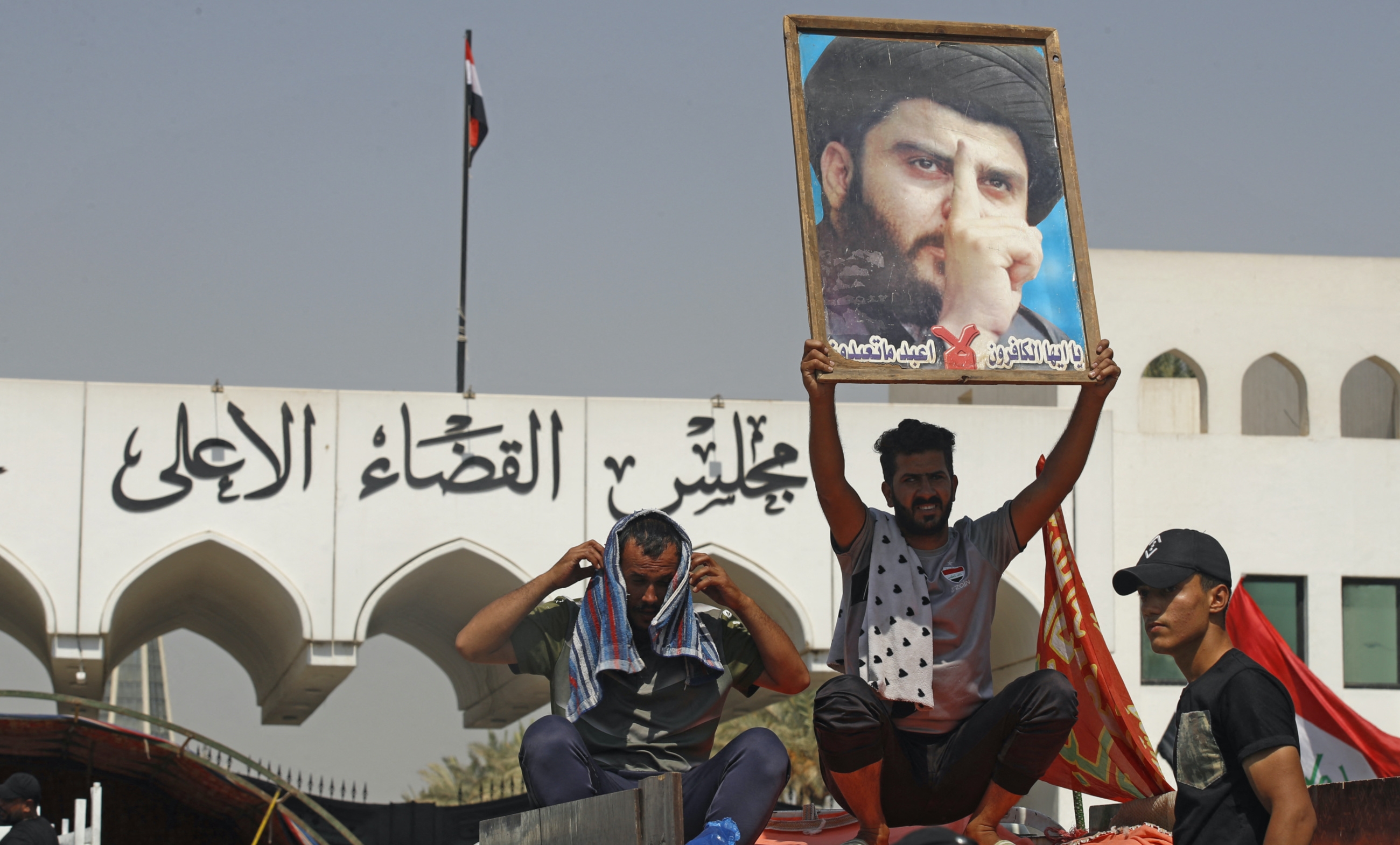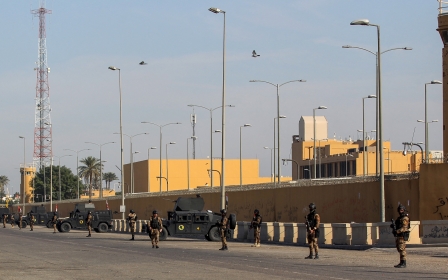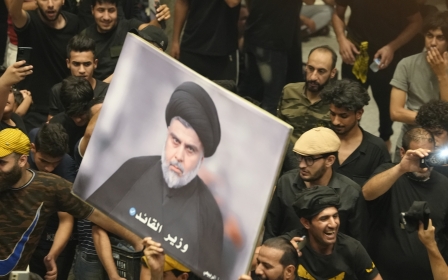Iraq: Sadr supporters shut down country's judiciary

Iraq's judiciary shut down across the country on Tuesday in response to supporters of Muqtada al-Sadr overwhelming its Baghdad headquarters, deepening the country's political woes.
The influential Shia cleric's supporters camped outside the Supreme Judicial Council demanding it dissolves parliament - a power the body insists it does not have.
Now both the judiciary and parliament are no longer functional, while Iraq wheezes on with a hamstrung caretaker government 10 months after elections were held.
The escalation follows weeks of protests by Sadr's supporters, who have occupied the parliament building since 30 July and insist on fresh elections.
New MEE newsletter: Jerusalem Dispatch
Sign up to get the latest insights and analysis on Israel-Palestine, alongside Turkey Unpacked and other MEE newsletters
Prime Minister Mustafa al-Kadhimi cut short a trip to Egypt to deal with the crisis at home and urged all sides to calm down, and renewed calls for a national dialogue.
'I will never go back home until Sadr orders us to do so'
- Ahmed Hashim, Sadrist protester
A 33-year-old pro-Sadr protester Ahmed Hashim and Baghdad native told Middle East Eye: “I am camping here in front of the Supreme Judicial Council as it has the final word to dissolve the parliament, and this is our demand, and it is clear to all political parties.”
The current political standoff pits Sadr, who emerged as the biggest winner in October's parliamentary elections, against a coalition of Iran-backed Shia parties known as the Coordination Framework that has frustrated his attempts to cobble together a government.
“I will never go back home until Sadr orders us to do so. They [the Coordination Framework] were behind all failures to form the government, and they are happy about this long deadlock to keep holding their position in the government,” Hashim added.
In a statement on Twitter, Kadhimi said disrupting the judiciary "exposes the country to serious risks" and pressed protesters on the "need to respect state institutions to continue their work in the service of the people".
The prime minister, who is close to Sadr, urged all political forces to "calm down and to take advantage of the opportunity for national dialogue and to get the country out of its current crisis".
Sadr's followers began gathering for protests outside the headquarters early on Tuesday. Judges have meanwhile received threatening calls, according to a statement by the Judicial Council.
The UN mission to Iraq stressed people's democratic rights to protest but said state institutions must be respected.
The Supreme Judicial Council, it said, "must operate unimpeded in service of the Iraqi people".
The stand-off in Iraq marks the longest stretch without a fully functioning government in the nearly two decades since Saddam Hussein was overthrown in a US-led invasion in 2003.
Sadr was the biggest winner of the 2021 election but was unable to form a government along with his Kurdish and Sunni Arab allies, which would have excluded the cleric's Iran-backed Shia rivals.
Over the last 20 years, Sadr has become a kingmaker in the country's polarised political landscape. He has often flexed his muscle by mobilising hundreds of thousands of supporters onto the streets.
The 48-year-old comes from a famous clerical family, and rose to prominence by leading Shia resistance against the US occupation of Iraq.
Positioning himself as an anti-establishment nationalist, Sadr has rejected interferance from Tehran and Washington, and railed against state corruption. Yet his followers dominate several important organs of state, including the interior, defence, communications and health ministries.
Additional reporting by Azhar Al-Rubaie
Middle East Eye delivers independent and unrivalled coverage and analysis of the Middle East, North Africa and beyond. To learn more about republishing this content and the associated fees, please fill out this form. More about MEE can be found here.




